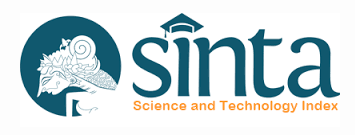ETIKA RELIGIUS DAN DAKWAH ISLAM : PERSPEKTIF BEBERAPA SUMBER HUKUM ISLAM
Abstract
This research discusses about te study of the ethics of religious and Dakwah of Islam from some perspectives of Islam’s law. Then, the objective of this research is to ascertain the study of the ethics of religious and Dakwah of Islam from some perspectives of Islam’s law. The type of the research is a descriptive qualitative done through literatures study. Data collected through documentation, using library research. A sources of the data obtained through primary data and secondary data. The data obtained are then processed with a content analysis method by clarifying the formal object of the research from general to specific. The study’s result represents that the ethics of Dakwah strongly stands up for a freedom of choice because if the God’s will, everybody can be faith all around the world. God provides a freedom of choice as human beings are being equipped the important thing by God that is mind. Indeed, in ethics of Dakwah, Islam people have to salute other people whatever their religions are as humans created by God.References
Al-qur’an dan Terjemahnya dengan Transliterasi, tanpa tahun, PT. Toha Putra, Semarang.
Basit, Abdul., 2006, Wacana Dakwah Kontemporer, Pustaka Pelajar, Yogyakarta.
Baqi (al), Muhammad Fu`ad Abdul., tanpa tahun, Al-Mu’jam al-Mufahras li al-Fazh al-Qur’an, Naskah yang ditunjukkan oleh PPs UIN Syarif Hidayatullah, Jakarta.
Esposito, John L., 2002, What Everyone Needs to Know About Islam, terjemahan Indonesia oleh Norma Arbi’a Juli Setiwan, Inisiasi Press, Depok.
Faizah dan Lalu Muchsin Effendi., 2006, Psikologi Dakwah, Prenada Media, Jakarta.
Hanafi, Hasan., 2007, Etika Global dan Solidaritas Kemanusiaan dalam Islam dan Humanisme, Aktualisasi Humanisme Islam Di tengah Krisis Universal, Abu Hatsin (pengantar), Penerbit IAIN Walisongo Semarang, dan Pustaka Pelajar, Yogyakarta.
Izutsu, Toshihiko., 1993, Ethico-Religious Concepts in the Qur’an, terjemahan Indonesia oleh Agus fachri Husen dan A.E. Priyono, Tiara Wacana, Yogyakarta.
__________., 2003, God and Man in the Koran: Semantics of the Koranic Weltanschauung, terjemahan Indonesia oleh Agus Fachri Husein dkk, Tiara Wacana, Yogyakarta.
__________., 1959, The Structure of the Ethical Terms in the Koran, Keio University, Studies in the Humanities and Social Relations, Tokyo.
Madjid, Nurcholish., 2006, Islam Doktrin dan Peradaban, Paramadina, Jakarta.
______________., 2007, Konsep Islam Tentang Manusia, dan Implikasinya Terhadap Apresiasi Muslim Mengenai Hak-hak Sipil dan Politik dalam Islam dan Humanisme, Aktualisasi Humanisme Islam Ditengah Krisis Universal, Abu Hatsin (ed. & pengantar), Penerbit IAIN Walisongo Semarang, dan Pustaka Pelajar, Yogyakarta.
Maududi, Abul a’la., 2004, Islam’s Way of Life, Islam Kaffah, terjemahan Indonesia oleh Sabrur Sunardi, Cahaya Hikmah, Jakarta.
Mubarak, Ahmad., 2002, Psikologi Dakwah, (Cet. 3), Pustaka Firdaus, Jakarta.
Nada, Abdul Aziz bin Fathi Sayyid., 2005, Mausu’ah al Adab al Islamiyyah al Murattabah ala al Huruf al Hija’iyyah, terjemahan Indonesia oleh Muhammad Isnaini dkk, Ensiklopedia Etika Islam, Maghfirah Pustaka, Jakarta.
Nasier, Abdul., 2005, Saya Asal Macassar, Ramadhan KH dan Fitria Sari, (ed.), Yayasan Obor Indonesia, Jakarta.
Nasr, Sayyed Hossein., 2003, Islam: Religion, History and Civilization, terjemahan Indonesia oleh Koes Adiwidjajanto, Risalah Gusti, Surabaya.
Nuh, Sayyid Nuh., 2004, Fiqh Dakwah al Fardiyah fi al Manhaj al-Islami, terjemahan Indonesia, Era Intermedia, Jakarta.
Qahtani (al), Saad ibn Ali ibn Wahf., 2005, Muqawwimat Adda’iyyah an Najih fi Dhau’ al Kitab wa as Sunnah, Mafhum wa Nazhar wa Tatbiq, terjemahan Indonesia oleh Aidil Novia, Qisthi Press, Jakarta.
Syuwaikh (asy), Adil Abdullah al-Laili., 2006, Musafir fi Qithratid Dakwah, terjemahan Indonesia oleh Asfuri Bahri, Rabbani Press, Jakarta.
Umr (al), Abdurrahman bin Hamad., 2001, Haqiqat Da’wat al Imam Muhammad Ibn Abdul Wahhab wa Namadzij min Rasailihi, Wasysyahadati Ulama Al Haramain Lahu, terjemahan Indonesia oleh Abdul Rosyad Shiddiq, Hakikat Dakwah Syeikh Muhammad bin Abdul Wahhab, Darul Falah, Jakarta.
Once an article was published in the journal, the author(s) are:
granted to the journal right licensed under Creative Commons License Attribution that allows others to share the work with an acknowledgment of the work's authorship. permitted to publish their work online in third parties as it can lead to wider dissemination of the work. continue to be the copyright owner and allow the journal to publish the article with the CC BY license receiving a DOI (Digital Object Identifier) of the work.





